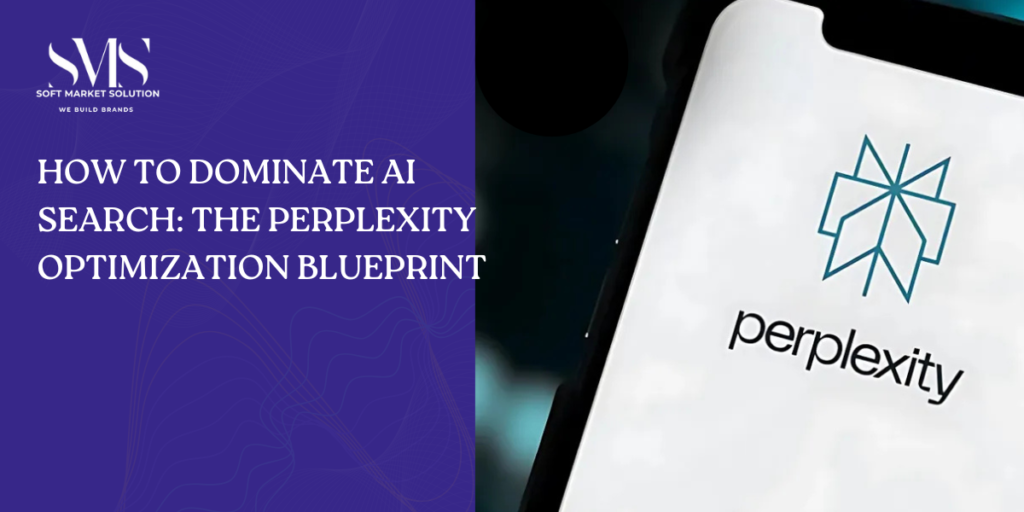
The search landscape is undergoing a seismic shift, and most marketers are completely missing it. While everyone’s still fighting over Google rankings, a new category of AI-powered search engines is quietly revolutionizing how people find information online.
The $14 Billion Wake-Up Call
In just three years, Perplexity AI went from startup to a $14 billion valuation. That’s not just impressive growth—it’s a validation of an entirely new way people want to search. Instead of scrolling through endless blue links, users want direct answers with trusted sources they can verify.
The tech giants noticed. Google launched AI Overviews. Microsoft enhanced Copilot. OpenAI added search to ChatGPT. Meta and Apple are building their own versions. When every major player moves in the same direction, it signals a massive opportunity for early adopters.
Here’s the game-changer: once you learn to optimize for one AI platform, those same principles work across all of them. You’re not just getting ahead of one search engine—you’re positioning yourself for the future of search itself.
Why AI Search Users Are Pure Gold
The user behavior on AI search platforms tells a compelling story. While typical Google visitors spend less than 2 minutes on a site, Perplexity users engage for 11-23 minutes per session. They visit 4-5 pages each time, and less than half bounce immediately.
This isn’t browsing behavior—it’s research behavior. These users aren’t casually exploring; they’re actively seeking solutions to specific problems. They’re further along in their buyer journey, making them exactly the kind of high-intent traffic every business wants.
The Citation Revolution
AI search platforms have introduced something revolutionary: radical transparency through citations. When Perplexity answers a question, it shows numbered citations for every piece of information. If your content gets cited, you’re automatically positioned as a credible, authoritative source.
This creates what I call the “citation effect.” When potential customers see an AI platform citing your expertise, it builds instant credibility. But the impact goes beyond direct customers—journalists, bloggers, and content creators also use these platforms for research, meaning your citations can reach both buyers and amplifiers.
Small Blogs Are Winning Big
Here’s something that will shock traditional SEO experts: small business blogs are getting cited more often than major news outlets. In fact, blogs capture 33% of all Perplexity citations compared to just 24% for news sites.
Why? AI platforms don’t care about domain authority the way Google does. They prioritize usefulness and structure over traditional authority signals. This levels the playing field and creates massive opportunities for smaller players who understand the game.
The 5-Step AI Optimization Blueprint
1. Use Question-Answer-Evidence Structure
Transform your content into specific questions your customers ask, followed by direct answers and supporting data. This format makes it easy for AI to extract and cite your information.
2. Make Everything Scannable
Structure your content with clear headings, numbered lists, and FAQ sections. AI platforms love content they can easily parse and quote from.
3. Create Original Data
Survey your customers, compile industry statistics, or conduct your own analysis. AI platforms heavily favor original research and data over regurgitated information from other sources.
4. Write Like People Talk
Use conversational language that mirrors how people actually speak. Instead of “Email Marketing Best Practices,” write “What’s the best way to set up email automation for my online store?”
5. Be Genuinely Helpful
Answer questions on Reddit and Quora. Engage in real conversations where your audience hangs out. AI platforms notice when you’re consistently providing value in authentic discussions.
Quality Over Quantity: The New Metric
Here’s a real-world example that changed everything: One piece of content getting 10,000 monthly Google visitors generated zero conversions—visitors spent 30 seconds and bounced. Another piece getting just 400 visitors from AI platforms generated more leads and sales than the 10,000 from Google.
This illustrates the fundamental shift happening in digital marketing. AI search users are self-selecting for higher buyer intent and influence. They’re business decision-makers with budgets, plus journalists and content creators who shape industry conversations.
The Early Bird Advantage
We’re in the early days of AI search, similar to the early days of Google SEO or social media marketing. The competition is minimal, the rules are still being written, and the opportunities are massive for those who act now.
The average person now uses 6.6 social networks per month, and they’re increasingly using multiple AI platforms—Perplexity, ChatGPT, Claude, Copilot—to find information. This fragmentation creates numerous opportunities for businesses that understand how to optimize across these platforms.
Your Next Move
The AI search revolution isn’t coming—it’s here. While your competitors are still focused on traditional SEO, you have a chance to dominate a new category of search that delivers higher-quality traffic with better conversion rates.
Start implementing the question-answer-evidence structure in your content today. Focus on creating genuinely helpful, well-researched content that AI platforms will confidently cite. Remember, you’re not optimizing for traffic volume—you’re optimizing for buyer intent and citation authority.
The early days of any platform offer the best opportunities. Don’t wait until AI search optimization becomes as competitive as traditional SEO. The time to act is now.
